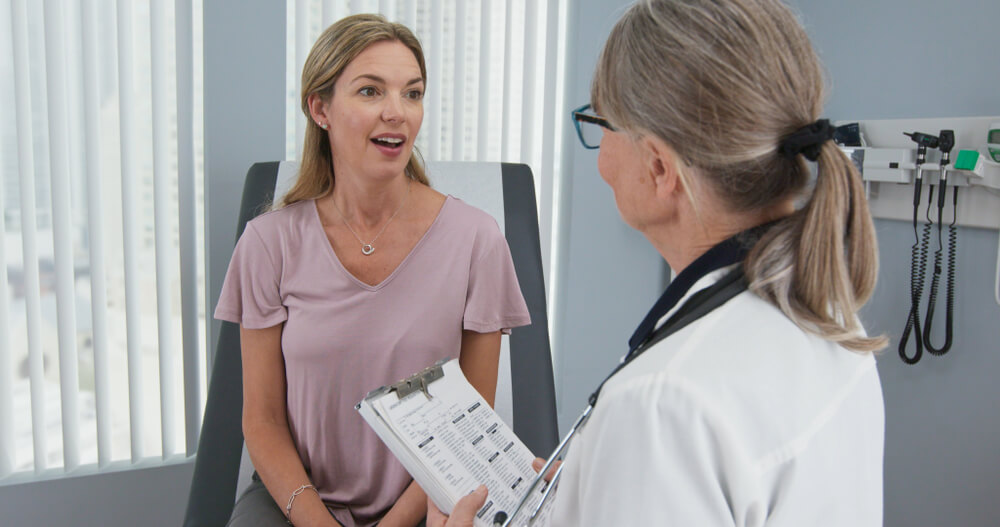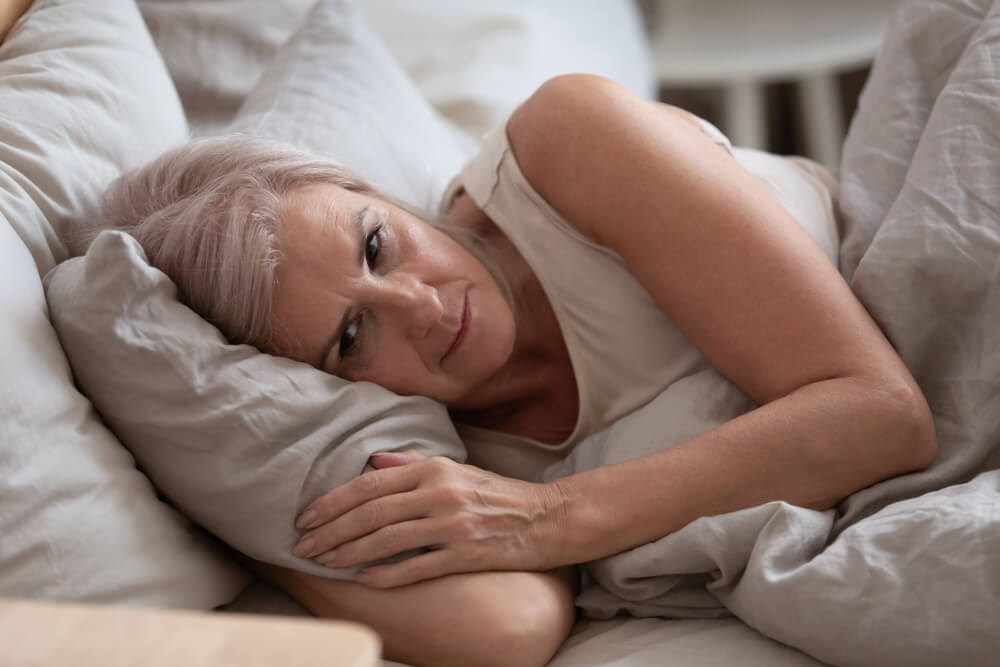Menopause is a stage in women’s lives when they stop getting their monthly period. This most commonly occurs after the age of 45 and lasts differently for each woman. If you have gone 12 months without getting your period, that officially means that you are in the menopause era and that your body will most certainly go through a few changes.
Symptoms such as night sweats, hot flashes, irritability, forgetfulness, etc., are very common when it comes to menopause, but to be a hundred percent certain that you entered menopause, it is advised to visit your chosen doctor, speak to them, and potentially perform some sort of a women’s wellness exam. In order to get the best possible care and guidance, do proper research and choose clinics that employ experienced doctors. We also advise you to contact Doral Beach Gynecology and explore the services they offer for women in menopause.
Causes of Night Sweats

Night sweats are defined as intense, drenching sweats that can soak your bedding and clothes and disrupt your sleeping pattern. Usually, when we sweat, that means that our body is trying to keep a normal temperature within and to make us feel comfortable and healthy.
When it comes to night sweats, they are not very comfortable because the person starts to feel very sudden changes in their body, like a heat wave which spreads fast throughout the body and is accompanied by redness of the skin and a very fast heartbeat.
It is important to note that the causes of night sweats are not only found in the fact that the person is going through menopause. They can also indicate other conditions such as diabetes, cancer, or infections, or they might be a signal that you are facing side effects from medicines you are currently taking. For this reason, it is very important to speak to your chosen doctor and share all the changes you are going through with them.
If the cause is traced to menopause, it most often occurs due to changes in the reproductive hormones progesterone and estrogen. When this occurs, the person’s hypothalamus, in charge of regulating body temperature, starts to have issues controlling the body heat. In menopause, night sweats are not the body’s only response to these changes because women can also experience hot flashes, as another way that the body fights the sudden rise of the internal temperature.
Other causes for night sweats might include:
- Primary ovarian insufficiency
- Premenstrual syndrome
- Premenstrual dysphoric disorder
- Pregnancy
- Infectious diseases such as HIV and tuberculosis
- Bacterial infections
- Viral infections
- Substance abuse
- Neurologic disorders
- Hormonal issues
- Sleep disorders
- Digestive issues
- Side effects from cancer treatments and various medication
- Hyperhidrosis
Night Sweats Treatments
As with many other conditions, the night sweats treatment path depends on the condition’s cause. Menopause night sweats can be treated through different approaches, depending on how severe they are and what your overall health status is.
Most commonly, medical professionals recommend hormone therapy, either with progestin or estrogen alone. That’s because the change in the hormonal balance of the reproductive hormones causes menopause night sweats. This type of therapy can also be helpful with issues such as bone loss or vaginal dryness.
Be aware that estrogen therapy should not be taken if the patient has a history of breast cancer and that all types of hormonal treatments carry certain risks, such as blood clotting and inflammation of the gallbladder.
Other medication options which do not include estrogen are:
- Antidepressants such as certain forms of paroxetine, which serve to reduce the effects of hot flashes
- Anticonvulsants which are also used to prevent or control seizures
- Clonidine that is used to help with high blood pressure, anxiety, ADHD, and similar conditions
- Oxybutynin which is prescribed to treat urinary conditions as well
- Megestrol which is used to treat uterine cancer and breast cancer, increase appetite, and help with involuntary weight loss
Many experts would also propose some options you can do on your own if you want to treat night sweats and hot flashes. The following proposals can be used as preventive measures, regardless of the exact cause of your hot flashes and night sweats.
- Drink cold water throughout the night.
- Wear light, loose-fitting clothes, cotton, or linen when you sleep.
- Use mattress covers and pillows which contain cooling gels.
- Be active every day; walk, swim, bike, or do yoga.
- Your bedding should be lightweight and layered, so you can remove it if needed.
- Before going to bed, try meditating, relaxing, and deep breathing techniques.
- Try using a fan or opening the windows while sleeping (air conditioning can sometimes negatively affect your health, so avoid the overuse of this option).
- Avoid consuming beverages and foods which are common sweat triggers, such as caffeine, alcohol, spicy food, or cigarettes, as well as doing exercise prior to going to bed.
- Ice packs can help you if you keep them under your pillow so you can turn the other side and enjoy the cooling effect.
Also…
Here are some additional pieces of information which you might be wondering about when it comes to night sweats and hot flashes.
- Night sweats, in most cases, do go away after you have had menopause for a few years. Unfortunately, there are some cases where the sweats do not stop, and they continue well into the postmenopause period, but they are not as severe, and they can be managed more easily.
- Stress can have a significant impact on night sweats because it elevates the heart rate, and due to this, the body can overheat.
- The cause of night sweats can be found in conditions such as leukemia or lymphoma, but they are very often followed by fever and fatigue, so make sure you monitor all of your symptoms.
- If you have a cold or the flu, as well as COVID-19, HIV, or tuberculosis, you might experience night sweats. Do not panic; first, check your symptoms and speak to your chosen medical practitioner.
When Should I Start to Worry?

If you start experiencing severe night sweats and hot flashes, which significantly disturb your sleep, and if you start noticing other symptoms, contact your doctor. If you are over the age of 50 and you are experiencing sweats, it is most probably menopause, but visit your medical provider in any case and get more information.
Getting a proper diagnosis is the first step to having a successful treatment plan and recovery, so do not wait – speak to your doctor.
Call Us!
Menopause has a different effect on different women, but most commonly, women struggle with night sweats and hot flashes for a few years after menopause. If you need a helping hand from experienced professionals, call our center and schedule a visit. Our specialists will guide you through this demanding period and help you mitigate the symptoms. Your reproductive health should be a priority, and our experts are ready to support you.


